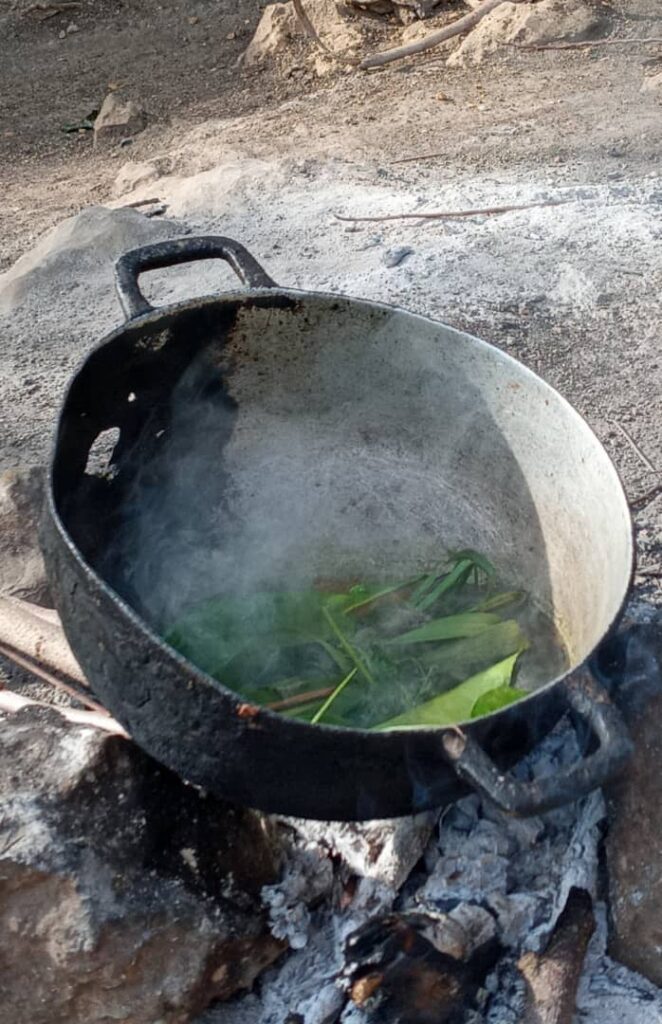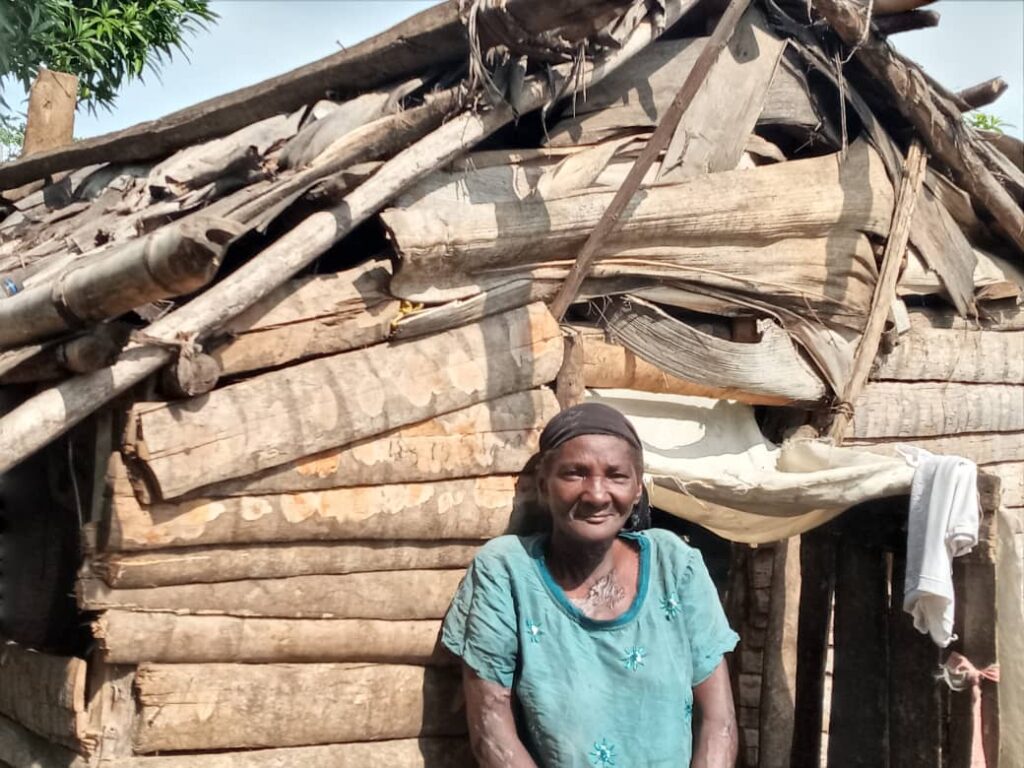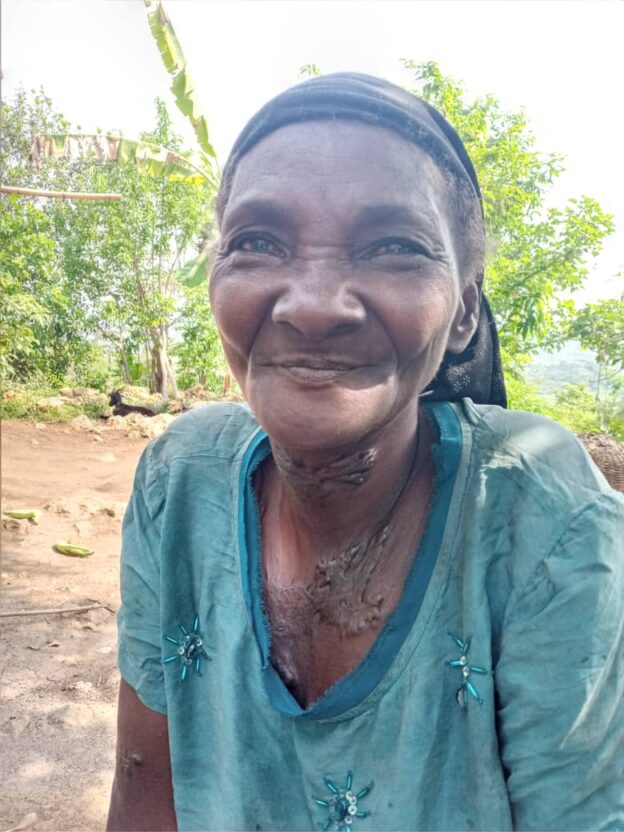Elismène lives in Ramye, a secluded corner of Laskawobas. Getting into the neighborhood is harder or easier, depending on the season. During the rainy season inlets of the nearby Artibonit River flood and the area is served by canoe ferries. During the dry season, however, the inlets shrink and one hikes through the gardens of beans, tobacco, vegetables, and rice planted throughout. There is only a small channel to ford.
She had eight children, but only four survived to adulthood. All are off on their own now, but she and her husband Michel have two of her grandchildren living with them. They live in a isolated, dilapidated shack in the back corner Ramye. The children’s parents send them to school, but Elismène and Michel are otherwise responsible for them.
The couple did various kinds of work to support themselves and the kids. Elismène would find small jobs to do for neighbors. Charcoal makers would have her help collect and bag their charcoal. During peanut harvest, she’d shell the nuts. Michel worked hard, too. He’d farm or he would make charcoal for her to sell in downtown Laskawobas. Now and again, one or the other would work a day in a neighbor’s field. Both the work and the income were irregular. There were days when she wouldn’t even start a fire. On better days, the morning might begin with no more than a small saucepan of tea. But they are both getting older and they cannot work as hard as they once did.

Elismène chose goats and a pig as her two enterprises. Both activities are doing okay so far, even though it has been a hard few months for both types of livestock in Ramye.
The dry season has left little greenery in the area for goats to graze on. Many of her fellow CLM members have seen their goats lose litters because of lack of feed. Elismène received two adult females and one already had an unweaned kid following behind it. So that when one of her nanny-goats died, she still had two females. Now the remaining adult has had its first kid, and the younger one is nearly mature.
Disease has taken a toll on pigs in the neighborhood, both those belonging to CLM members and those of their neighbors, but Elismène’s sow is healthy and growing. It’s still too young too mate, but Elismène and Michel are watching it carefully for the first signs.
She has plans for further progress. She and Michel squeeze something out of whatever they can bring in each week to contribute to her savings and loan association. “When I have money from charcoal, if I spend 60 gourds, I save 40.”
She hopes to have enough so that, by the end of the association’s year-long cycle, she’ll have enough saved that she will be able to take the money, add to it by selling a few goats, and buy a cow. The interest she expresses in a cow is different from the explanation one often hears from younger women. “I want a cow because my husband helped me a lot when I was raising my kids, but just one of them is his. If he dies, a cow will help me pay for his funeral.”
But she worries about making progress, too, because she worries about the jealousy it can lead to. “When folks see you have two or three animals, they try to kill them. My husband doesn’t really sleep anymore. He spends the night lying in the house, listening to make sure the goats are okay.”

